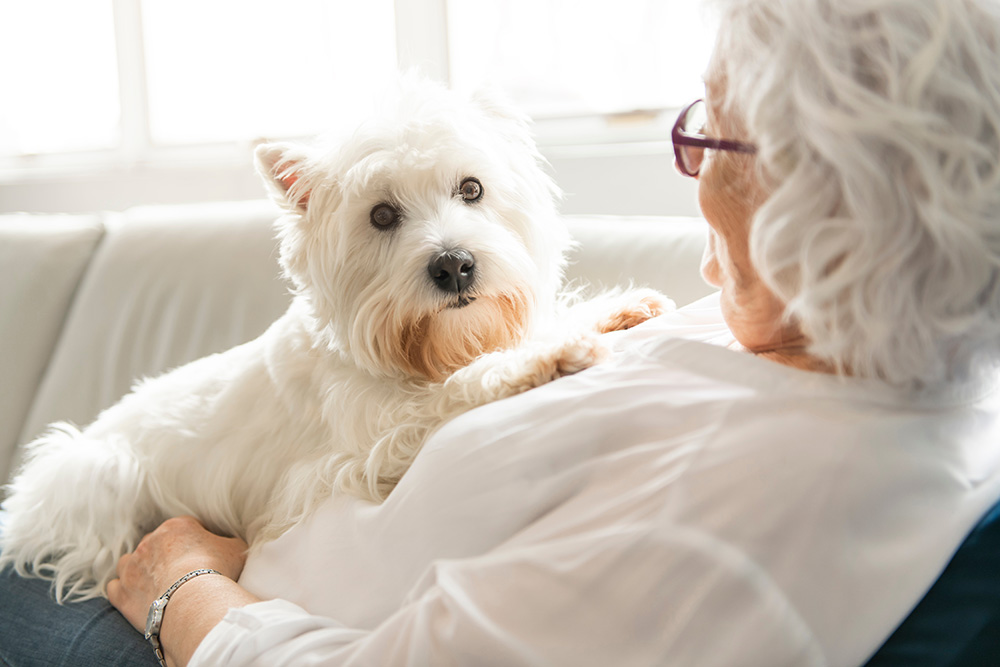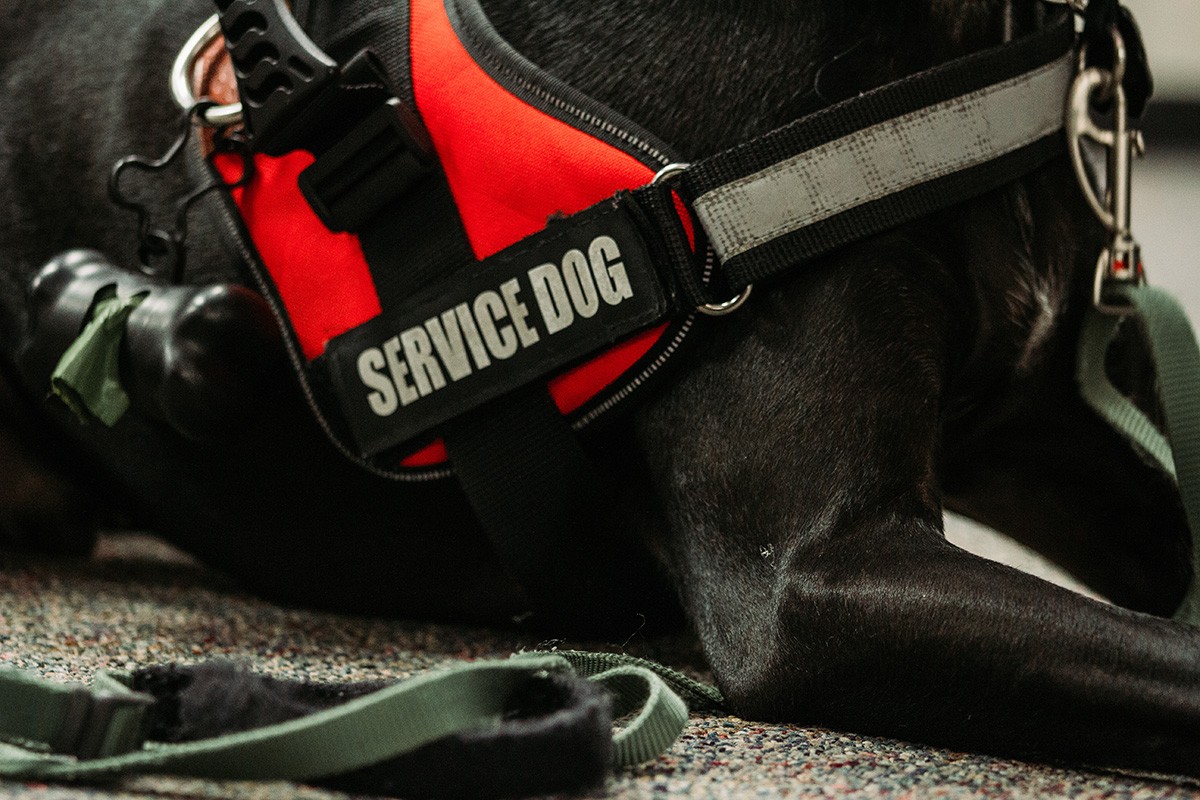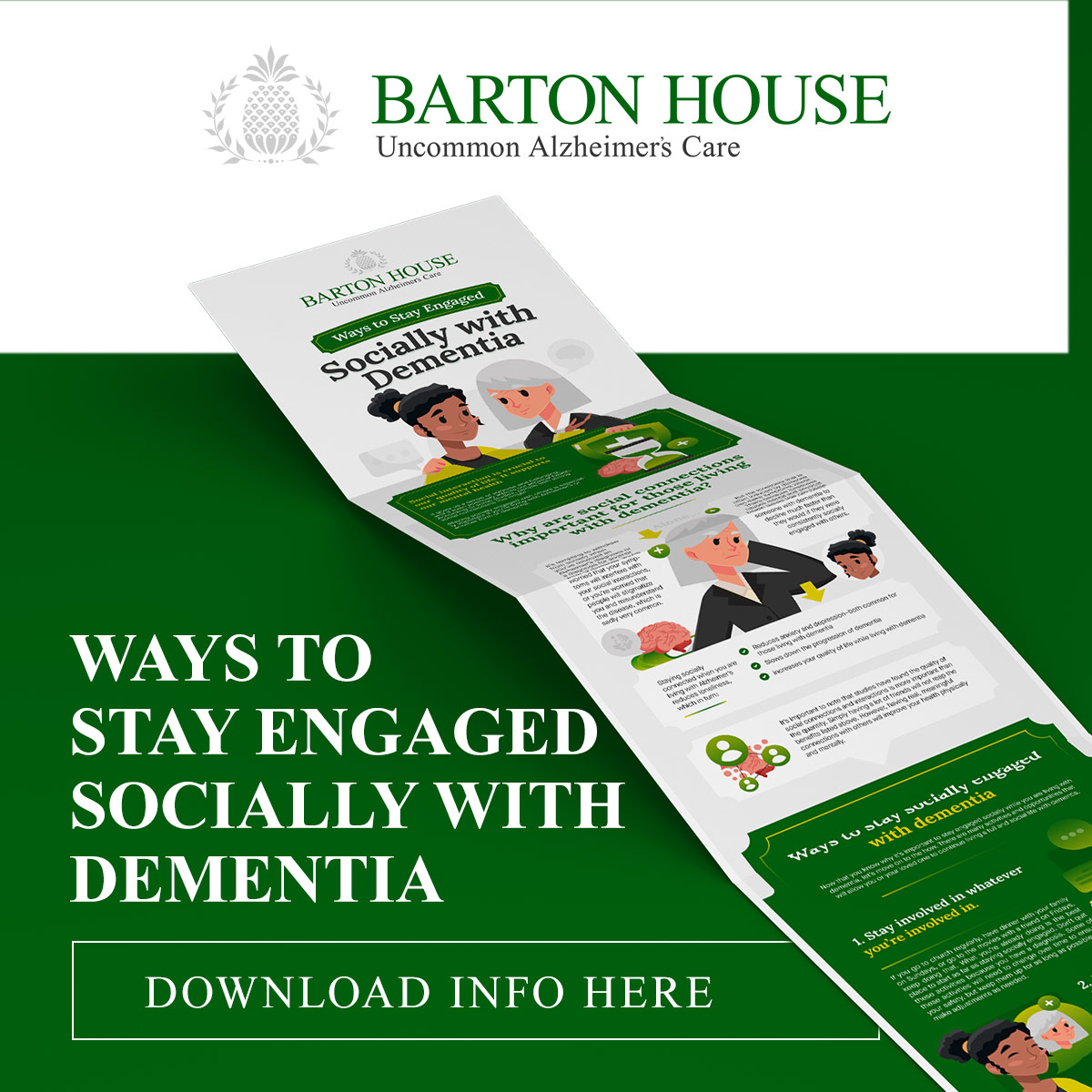Pets and Dementia: Can a Pet Help Someone Who Is Living with Dementia?

Pets and dementia
If you’re an animal lover, you know how much joy a pet can bring. A pet greets you when you get home, cuddles with you on the couch when you watch TV and is your constant companion. Pets often become just like members of the family because they’re so beloved.
Animals can have a positive effect on us physically, mentally and emotionally. And this has certainly proven to be true with those who are living with dementia, a physically and emotionally difficult disease.
In addition to pets, animals can serve different purposes for those who are living with cognitive decline such as Animal Assisted Therapy (ATT) and service dogs. Even robotic animals can benefit someone who is living with dementia.
Before going out and buying a puppy for your loved one or signing him up for ATT, consult with his physician to determine what would benefit him the most as his disease progresses.
Share this Infographic Image On Your Site
<p><strong>Please include attribution to https://barton-house.com/ with this graphic.</strong><br><br><a href="https://barton-house.com/ways-to-stay-engaged-socially-with-dementia/"><img src="https://barton-house.com/wp-content/uploads/2022/11/barton_house_infographic_Ways_to_Stay-Engage_socially_with_dementia.jpg" alt="Ways to Stay Engaged Socially with Dementia" width="461px"></a></p>Caring for a pet while living with dementia
Most research done on pets and those living with dementia is performed in the context of long-term care facilities that have a community dog or pet for residents. However, according to Kathleen Allen, LCSW, having a pet in the home for someone who is living with dementia has many benefits. Pets provide companionship, emotional support and can reduce anxiety and feelings of aggression. They also provide an opportunity to be more physically active. (Physical activity is important for those living with dementia and Alzheimer’s.)
But pets also come with responsibilities. They need to be taken care of, fed, walked and bathed. Is your loved one capable of these responsibilities at this stage of their disease?
The UK Alzheimer’s Society recommends considering a series of questions before buying your loved one a pet to help with his or her dementia, including:
A pet can certainly help someone who is living with dementia, but ideally, that person is not solely responsible for the animal. Make sure your loved one wants the pet and make sure there will be someone available who can care for it.
Animal Assisted Therapy for dementia

Even if a pet isn’t ideal for your loved one right now, this doesn’t rule out the use of animals as a part of the overall care plan for your loved one, especially if she likes animals but simply isn’t able to care for one anymore. In this case, Animal Assisted Therapy could be a good option.
According to Therapet, Animal Assisted Therapy (ATT) is “the utilization of animals as a therapeutic modality to facilitate healing and rehabilitation of patients with acute or chronic diseases.”
Research has shown that AAT has numerous benefits for those suffering from mental or physical illness, including:
In one study that looked at how ATT affected those with dementia, the findings were significant. For dementia, ATT contributes to higher activity levels, it can relieve sundown syndrome (increased agitation or restlessness in the evenings), improve short-term memory, reduce loneliness and improve eating habits.
AAT is performed in the presence of a professional with an individual or in a group setting. The professional will observe and evaluate each session to determine if progress is being made.
Talk to your doctor to see if AAT could be a good therapeutic option for your loved one.
Service dogs for those who are living with dementia

You’ve likely seen someone who is hearing- or vision-impaired using a service dog in public places to help him or her navigate a crowded room, restaurant or airport. Service dogs can be helpful for those who are living with dementia and Alzheimer’s too.
According to this article, service dogs can be trained to:
A service dog is most helpful in a situation where the person living with dementia has a caregiver who can also care for the animal and give the proper commands that will help care for your loved one.
A service dog is probably most helpful for someone who is still living at home, as memory care facilities may not allow service dogs unless someone is able to care for the dog.
Pets and dementia alternatives
If a pet, Animal Assisted Therapy or service dog seems too high maintenance or unnecessary for your loved one’s needs right now, there are alternatives to owning a pet or having regular pet therapy sessions.
A diagnosis from an expert such as a neurologist is essential to determine whether you or your loved one has depression, a neurodegenerative disease like Alzheimer’s or both. When these diagnoses are confused and left untreated, it can increase the severity of the disease.
Robotic dogs or animals can be lifelike versions of a pet minus the responsibilities and maintenance.
Stuffed animals can help calm those who are living with dementia and provide comfort without the daily requirements of caring for a pet.
Some memory care facilities have a dog on site or will bring in dogs or other therapy animals to play with and spend time with the residents. This can be a good option to look out for if your loved one had a pet or loves animals and is transitioning into a care facility. Ask the residence if they facilitate pet therapy or would be open to it.
The research is clear that pets and animals are helpful for those who are living with cognitive decline. It’s a matter of determining what kind of animal or therapy is right for your loved one. Explore your options, talk to your provider and make sure to keep your loved one’s wishes and needs at the center of the conversation.






